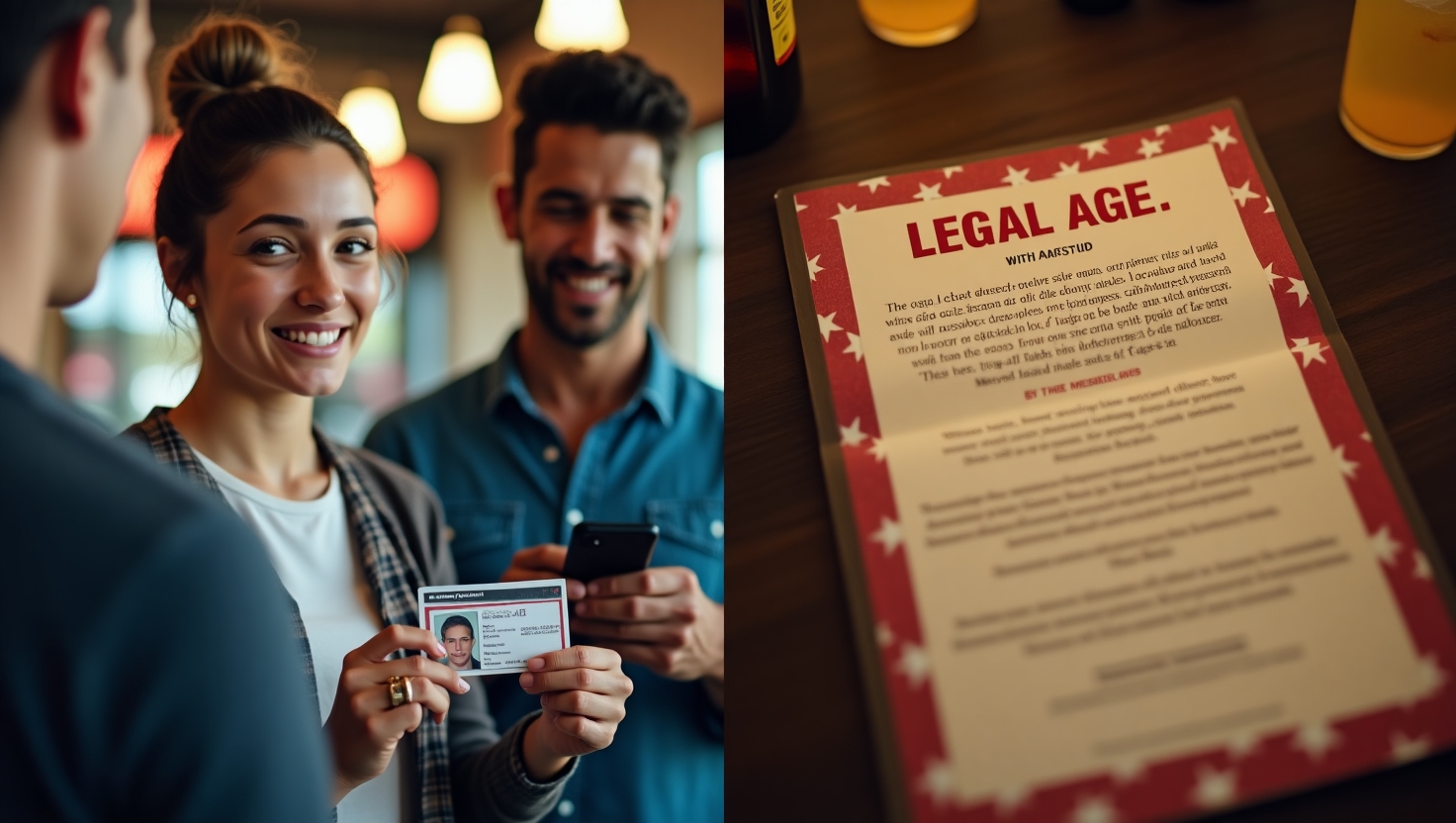Whether you’re heading to a local liquor store for a bottle of wine or ordering a craft cocktail at your favorite bar, knowing the laws around buying alcohol legally in the U.S. is essential. Alcohol regulations can be confusing due to the mix of federal, state, and even local rules—but this guide breaks it down so you know exactly what to expect.
Why Alcohol Laws Vary
The United States doesn’t have a one-size-fits-all alcohol law. While the federal government sets minimum standards—like the legal drinking age—states and local governments are free to impose stricter regulations. That’s why buying alcohol in New York might be a completely different experience from doing so in Utah.
The National Minimum Legal Drinking Age (MLDA): 21
Since the National Minimum Drinking Age Act of 1984, the legal age to purchase alcohol anywhere in the U.S. is 21. This law applies across the board—whether you’re buying beer, wine, or spirits.
Valid Identification Requirements
To purchase alcohol legally, you must present a valid government-issued ID. Common forms of ID include:
- Driver’s license
- State-issued ID card
- U.S. passport or passport card
- Military ID
Some establishments also use electronic ID scanners to verify authenticity. If your ID is expired or damaged, you may be refused service.
Types of Stores That Sell Alcohol
Alcohol sales in the U.S. typically happen at:
- Liquor stores (also called package stores)
- Grocery stores (in many but not all states)
- Convenience stores (varies by state)
- Bars and restaurants (for on-premise consumption)
Each of these locations must be licensed, and their hours of operation for alcohol sales are often regulated.
Store Hours and Sunday Sales
Not all stores sell alcohol at the same times. Some common rules include:
- Sunday Restrictions: Many states limit or ban alcohol sales on Sundays.
- Late-Night Cutoffs: Some areas prohibit alcohol sales after a certain hour (e.g., midnight).
- Dry Counties: Some counties or towns prohibit alcohol sales entirely, regardless of the day.
Buying Alcohol Online
With services like Drizly and Instacart, online alcohol purchases have become more common. However, the same rules apply:
- You must be 21 or older.
- ID verification is required at the point of delivery.
- Some states restrict or prohibit online alcohol delivery altogether.
Can Minors Ever Buy Alcohol Legally?
In general, no. However, there are a few exceptions in some states:
- Religious Ceremonies: Some states allow minors to consume (not buy) alcohol during religious services.
- Parental Supervision: A handful of states allow minors to drink under the direct supervision of a parent or guardian.
- Culinary Use: In some places, minors can purchase alcohol for culinary school or employment purposes.
Alcohol Purchase Limits
Most states don’t have strict personal limits, but some control states do. For example:
- In Pennsylvania, the state limits the amount of alcohol that can be purchased in one transaction at state-run stores.
- In Utah, there are restrictions on buying high-proof alcohol in regular grocery stores.
Consequences of Breaking the Law
Buying alcohol illegally can carry serious consequences, such as:
- Fines and community service
- Jail time in severe cases
- Suspension of driver’s license
- A permanent criminal record (especially for fake ID use)
Tips for Buying Alcohol Responsibly
- Always carry valid ID.
- Know the local laws. Time and place matter.
- Never buy alcohol for minors. That’s considered “furnishing to a minor” and is illegal in all states.
- Plan ahead on holidays and Sundays.
- Use delivery apps wisely. Make sure someone 21+ is home to accept the order.
Final Thoughts
Buying alcohol in the U.S. might seem straightforward, but laws can vary dramatically from state to state—and even city to city. Being informed helps you stay on the right side of the law, avoid unnecessary fines, and ensure a safe and legal drinking experience. When in doubt, check with your local Alcoholic Beverage Control (ABC) agency or ask a licensed retailer.
Cheers to knowing your rights and responsibilities!


